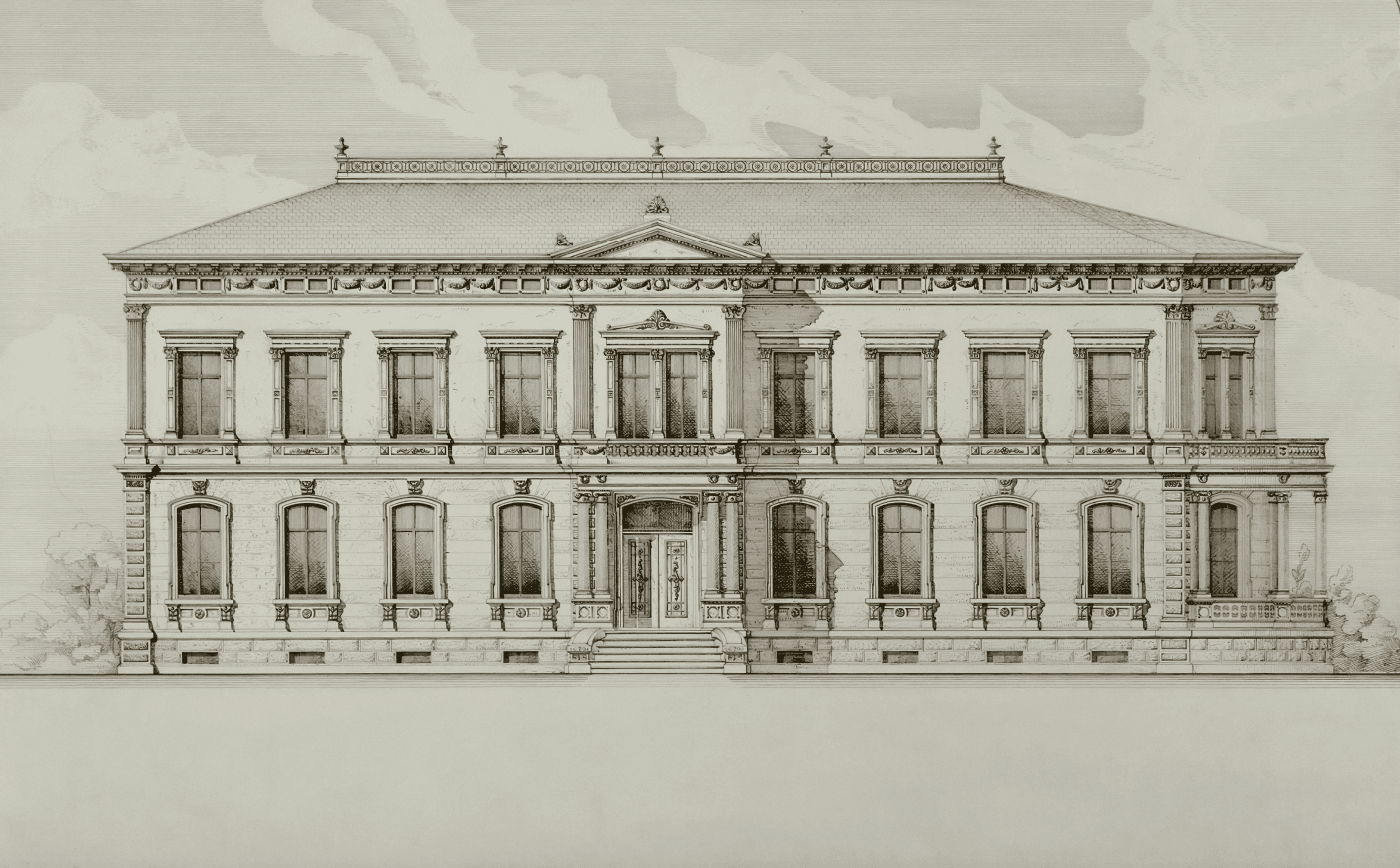Art, Science, AI, and the history of Real Estate
Real Estate development, like many disciplines, is a mix of Art and Science. Developers practice their art by understanding space, designing buildings, nurturing relationships, and bringing a vision to life. The end product is a work of architecture - one of the oldest forms of art that has a rich lineage tracing its origin all the way back to the Pyramids. At the same time, developers rely on "scientific" methods to engineer plans, model financials, calculate schedules, and process data. The Pyramids are renowned for their architectural beauty, but equally impressive because of the careful planning and execution required to build them - especially given the technology available to the Egyptians in 2600 BC.
Related Reading: This philosophical exploration of AI and real estate builds on our practical analysis of why real estate has been slow to adopt technology and how AI data ingestion creates opportunities for better real estate tools.
Technological advancement in construction techniques and materials have played a critical role in the history of real estate development. Techniques such as the use of columns in Greece, arches in Rome, or domes in the Islamic World have become commonplace in modern day buildings. Many other styles were unlocked by improvements to construction materials such as reinforced concrete and structural steel that allow skyscrapers to stand on their own.
Real Estate development trends are also directly correlated with broad technological and societal changes. Villages protected by stone castles were prevalent in the medieval period, and then were made obsolete with the invention of gunpowder. Dispersed, agrarian homesteads were the norm until the industrial revolution drove concentration in urban environments. The internet created the opportunity for more efficient remote work, and for many people this became their new standard after covid-19. Fifty-five years ago, we landed on the moon. It's exciting to think about what real estate will look like as we become a space-faring species within the next century.
Artificial intelligence entered the public consciousness in 2022 with the release of ChatGPT. Some people write it off as an overhyped tech cycle and others take issue with the form factor of a chatbot. Regardless, the core underlying technology of being able to mathematically represent semantic meaning is here to stay. It is truly remarkable that computers are now able to take in raw unstructured data and convert it into a format that machines can process. We're in the very early innings and still figuring out the best ways to leverage AI to make work easier - but there's no doubt that knowledge work will be forever changed.
How is artificial intelligence going to change our society? And how is that in turn going to change real estate? The answer is very much up for philosophical debate, and is especially interesting to consider in the context of real estate developers' roles as artists and scientists.
There are plenty of AI models that are capable of creating digital “art” based on prompt descriptions. With tools like Midjourney or Dall-E, it's possible to create visually stunning images in a matter of seconds from a simple text prompt.
Interestingly, the ease of creating these images detracts from their value as traditional art. This hints at a fundamental question of what makes Art, Art. It turns out that an important part of what makes Art, Art, is the artist themselves - and their unique expression of humanity and narrative. It's not enough to see a portrait of a woman with a mysterious smile - we need to know that Da Vinci was a pioneer of his time whose multidisciplinary work inspired the high renaissance and whose Mona Lisa is the most famous painting in the world largely because of the publicity generated when it was stolen in 1911. Ai Weiwei's (Sunflower Seeds)[https://en.wikipedia.org/wiki/Sunflower_Seeds_(artwork)] are only interesting because of the two and a half years that it took 1600 workers to hand paint over 100 million porcelain stones. As Cormac McCarthy puts it “Things separate from their stories have no meaning. They are only shapes.”
Will we want to live and work in buildings developed by our AI overlords? Maybe if the price is right, but all else being equal we won't. We'd rather appreciate art in a museum than see it pop up on an infinite feed. We'd rather live in a human imagined home than an AI generated shelter.
Perhaps this is idealistic - after all, in reality most of us are more likely to be found scrolling our phones than wandering an art museum. But counterintuitively, as artificially generated content becomes more and more prevalent, we are going to develop more and more of an aversion. The Turing test is going to become harder to pass as we demand to know the source. Would you even consider reading this long of an essay if it was AI generated? Would you be inspired by the beauty of a building that was created by next token prediction?
While its ability to create art is up for debate, artificially intelligent language models are undoubtedly a scientific marvel, especially for their ability to structure unstructured data. Much of the work that real estate developers do involves extracting data from documents and translating it into other documents.A common example is grabbing the due date and amount from an invoice, and entering into a payment portal or updating a proforma. This work has become increasingly burdensome for humans as legal documents have gotten longer and building has become more complex. The burden has acutely increased for real estate developers as the rest of the world has become more digitized, while real estate largely has not.
Modern day real estate development requires significant operational and administrative execution. This requirement comes from capital providers who will only fund projects whose managers can successfully manage towards IRR and MOIC targets. Because of this, it's much more common to find developers who come from financial or operational backgrounds rather than the arts.
Artificial intelligence is making the technical skill of taking numbers from legal documents and putting them into a spreadsheet obsolete. It's also able to compile documents into construction draw requests, respond to diligence requests, and email back the city. It can automatically update schedules, adjust timelines, and send reminders to keep projects on track. An intelligent computer, with no need for sleep and omniscience to a real estate project is much better able to manage towards an IRR than a human is able to. What then is the role of the real estate developer?
It's a good question, and one without a good answer yet. Many industries will face this same question as artificial intelligence is able to outperform human knowledge work. My hope is that it will be similar to the invention of the calculator or word processor. Freeing up time for humans to abstract their level of work to a higher plane. Perhaps artists, architects, and urbanists will be able to realize and execute their own projects with an AI powered tool to assist them in managing the administrative and operational burden.
Still it's an interesting question - what will we do when a computer can do everything we can do, but do it better?
AlphaGo is an incredibly powerful movie about the DeepMind model that was trained in the ancient game of Go and beat a top professional in 2016. Lee Sedol, the Go professional, had devoted his life to Go and had been soundly and easily crushed by a computer. An incredible achievement for the researchers, a career altering defeat for the practitioner.
We're not without hope. Computers have consistently beaten humans at chess since the mid 90s. Yet Chess today is more popular than ever, and computer assisted analysis has helped elevate the game at every level. AI is coming for us, but it's making us better. What will we build?
Explore More: Learn about how AI helps real estate teams unlock their internal data and discover how AI empowers developers to build the missing middle.

